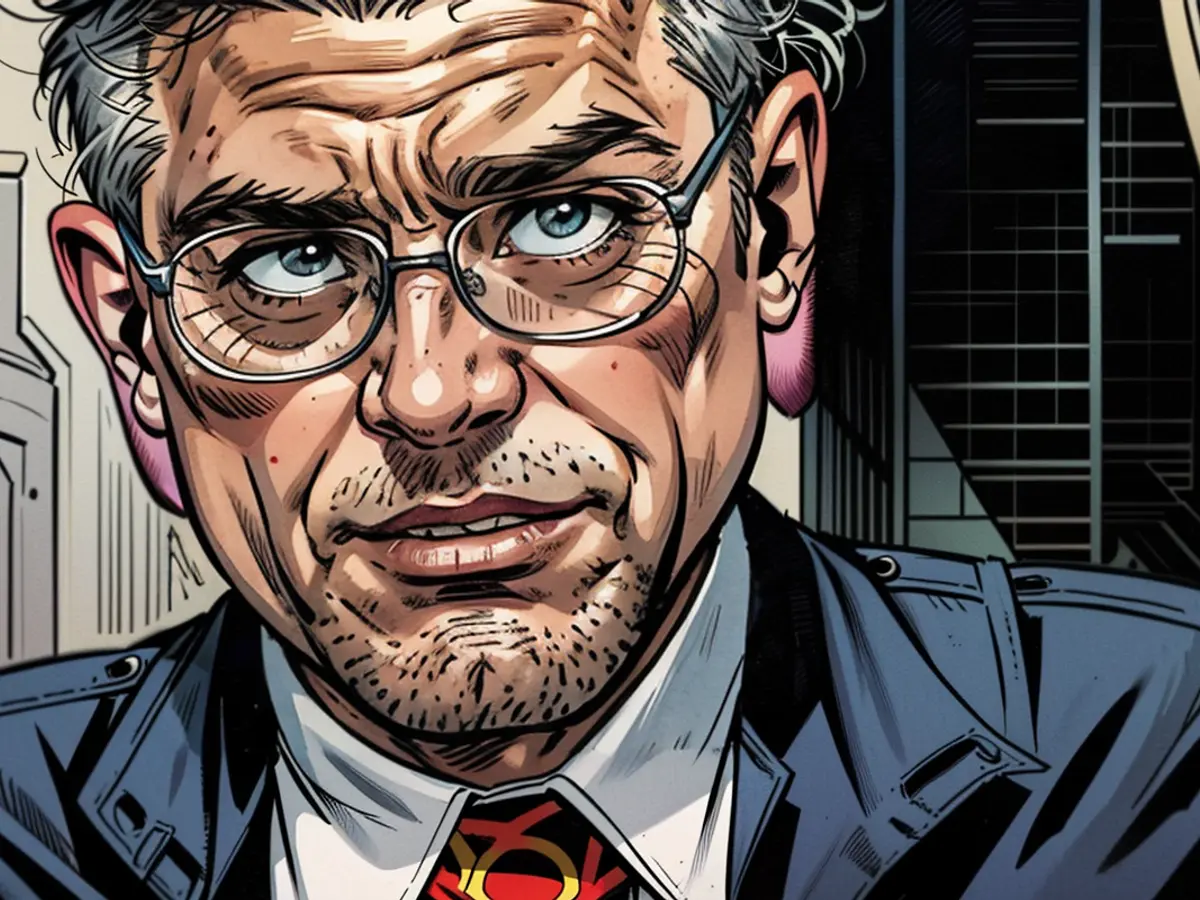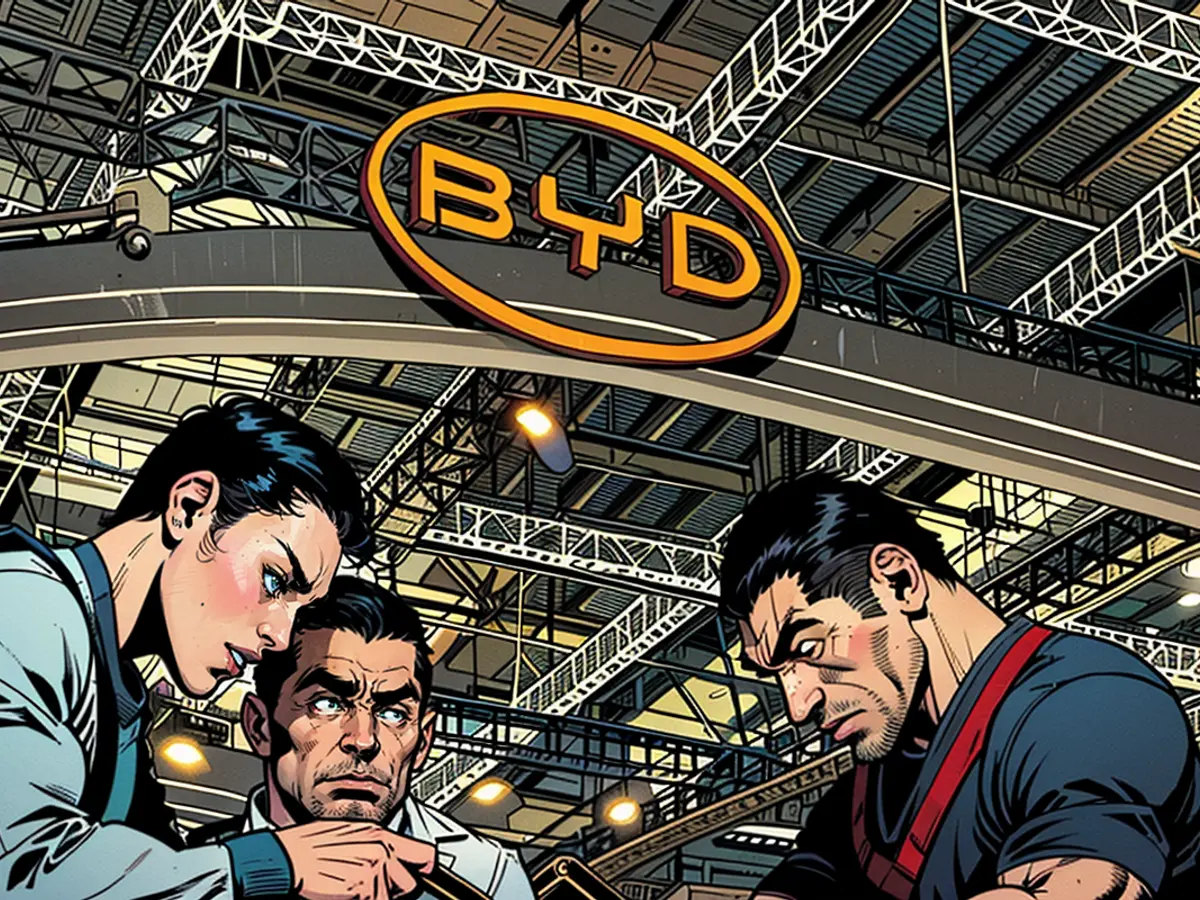Berkshire Hathaway, led by Warren Buffett, sells off its BYD shares amidst a surge in trade tensions related to Chinese electric vehicles.
Investment titan's conglomerate divests yet again, shedding 1.35 million shares of BYD on June 11, reducing their ownership to 6.9% from 7.02%. The transaction amounts to 310.5 million Hong Kong dollars ($40 million).
This is Berkshire's first major sale of BYD shares in ten months and the 14th sale since August 2022, when they started to gradually thin out their position in China's top electric vehicle manufacturer. The stock soared to a peak in June of that year.
The recent sale takes place amidst a surge in dispute over low-cost EV exports from China.
China has established itself as a colossal player in the global electric vehicle sector, bolstered by substantial government policies and substantial state support. However, an influx of budget models has fueled the anticipation of another trade war with its Western trading partners.
Last week, the European Union imposed additional tariffs on EVs imported from China due to perceived unfair support for companies that outperform European carmakers.
This move is anticipated to harm the very manufacturers who view Europe as a crucial export market. BYD faces an extra 17.4% levy on top of the bloc's existing 10% duty on auto imports, according to the European Commission's statement.
China, aiming to make its EV industry a powerhouse, has threatened retaliation. On Monday, it declared a preliminary anti-dumping investigation into pork imports from the EU.
Tensions between China and the United States have previously peaked over the same issue. In May, the Biden administration increased tariffs on EV imports from China to 100% from 25%, with the aim of boosting domestic employment and manufacturing.
Buffett expressed the importance of resolving the U.S.-China discord and fostering harmony last year.
Shrewd Investment in BYD
BYD, established by Wang Chuanfu in Shenzhen, has experienced an exceptional growth trajectory over the past thirty years. It surpassed Elon Musk's Tesla (TSLA) at the end of last year as the world's leading electric vehicle seller. Although Tesla reclaimed its title in the first quarter of this year, they remain closely matched.
In 2008, Berkshire invested $230 million in BYD shares at an average of HK$8 ($1.02) a piece. At the time, BYD's stock price had plummeted to an all-time low due to the global financial crisis.
This investment has proven to be one of Berkshire's most profitable transactions.
BYD achieved a record closing high of HK$331.4 in June 2022, approximately 41 times the initial purchase price.
Since then, Berkshire has been on a selling spree, with their first significant sale disclosed in August 2022.
Thus far, Berkshire has offloaded approximately 149 million shares without disclosing the motivations behind these liquidations. Berkshire didn't immediately respond to a query for comment by CNN.
Last month, Buffett mentioned BYD at Berkshire's 2024 annual meeting, attributing his closest business partner Charlie Munger, who passed away in November, for his recommendation to buy the stock. Munger, Buffett said, "was right, big-time."
As of Tuesday, Berkshire retains 75.7 million Hong Kong-listed shares of BYD, valued at about 17.6 billion Hong Kong dollars ($2.3 billion).

Read also:
Berkshire Hathaway could consider diversifying its portfolio by investing in electric car businesses outside of China, given the ongoing trade tensions. The company's decision to sell off BYD shares might prompt them to explore opportunities in the competitive global car market, utilizing their considerable business acumen and resources.
In light of the increasing trade disputes and potential tariffs on low-cost EV exports from China, Berkshire may seek to diversify its portfolio with car businesses that operate in regions less prone to such disputes. With its extensive experience in the car industry and substantial financial resources, Berkshire Hathaway could find success in this international venture.








